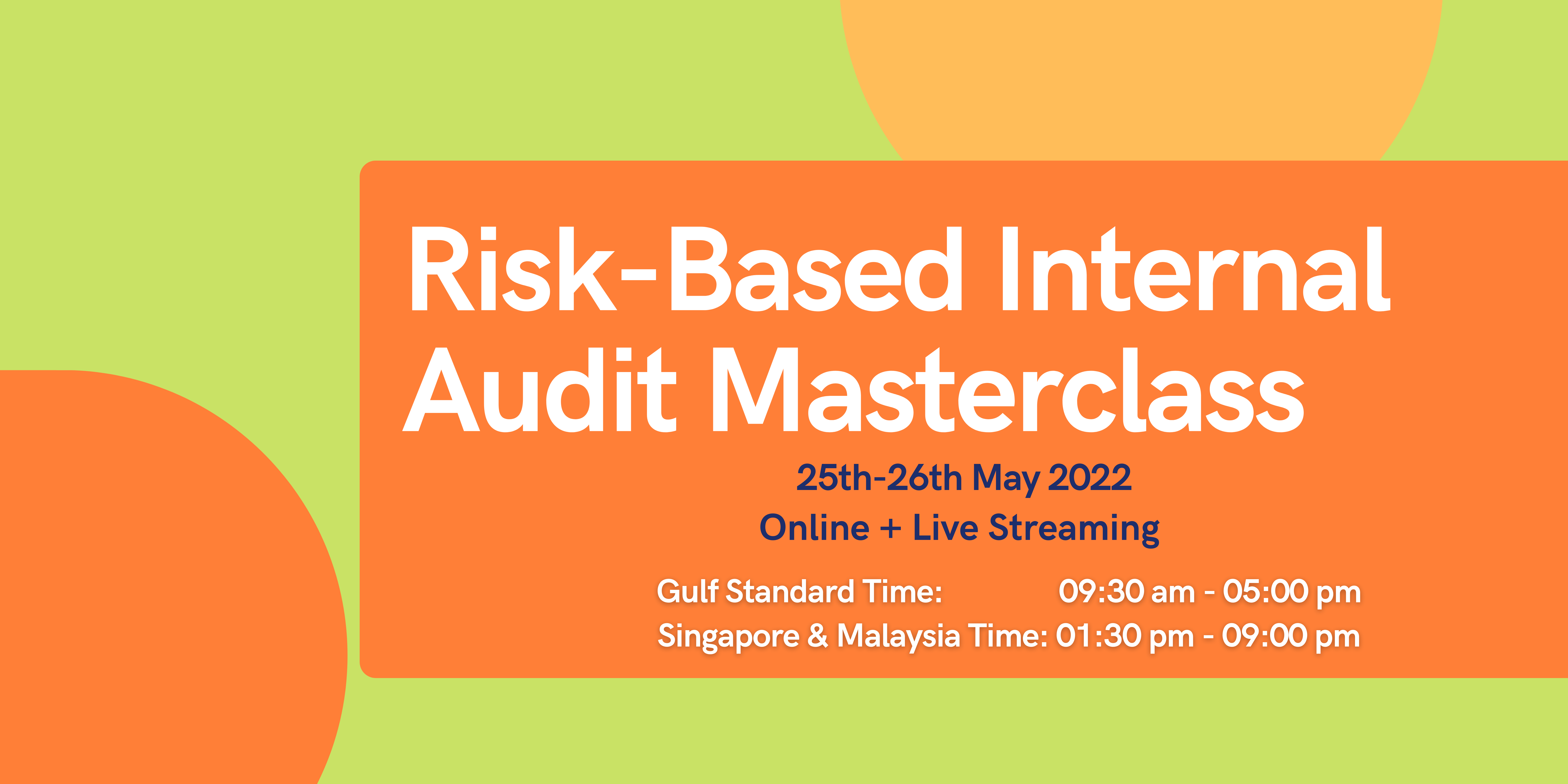Advanced Risk-Based Internal Auditing
25th – 26th May 2024
Online + Live Streaming
Gulf Standard Time: 09:30 am – 04:30 pm
Singapore & Malaysia Time: 01:30 pm – 08:30 pm
Introduction
The need to manage risks is increasingly recognized as essential to effective corporate governance and to maintain an effective system of internal control. Internal audit plays a key role in providing assurance that risks to the organization are properly managed. Risk-based auditing links internal audits to an organization’s overall risk management framework.
,
This course provides participants with the knowledge to develop an audit universe and risk-based internal audit plan. This course also addresses emerging and advanced risk management topics such as governance risk, strategic risk, fraud risk, information technology risk, and auditing the risk management process. During this course, you will participate in interactive activities and real-life scenarios. Be prepared to walk away with concepts and tools to develop a value-added, risk-based audit plan for your organization.
Who should attend:
- C-Suite, including Chief Executive Officer, Chief Audit Executive, Chief Financial Officer, Chief Risk Officer
- Internal Audit Directors, Managers, and Executives
- Risk Management Directors, Managers, and Executives
- Finance Directors, Managers, and Executives
- Directors and Managers of business functions responsible for improving the risk management of their function
- Professionals in Compliance and Quantity Assurance functions responsible for adopting a risk-based approach towards the assurance
Objectives
Attendees will acquire practical skills to:
- Apply risk management principles and concepts
- Define corporate governance principles
- Describe the relationship between governance principles and COSO frameworks.
- Relate governance, risk, and control
- Conduct strategy objective audits
- Perform strategy planning process audits
- Develop an anti-fraud program
- Conduct a Fraud Risk Assessment
- Apply IT risk assessment frameworks
- Adopt different approaches to assess risk management
- Link audit programs and testing with the risk registers
- Apply risk identification, measurement, and prioritization techniques
- Develop and present a
Trainer’s Profile
The course trainer is a Certified Internal Auditor, Certified Fraud Examiner, Chartered Accountant of Singapore, and received a Certification in Control Self-Assessment. She gained valuable work experience in internal audit, risk management, compliance, and fraud investigations with professional firms, multi-national corporations, and government-linked companies.
The Contents
Module 1: Risk Management Principles and Concepts
Module 2: Assessing Governance
Module 3: Assessing Strategic Objectives
Module 4: Fraud Risk Assessment
Module 5: IT Risk Assessment
Module 6: Assessing the Risk Management Process
Module 7: Developing the Risk-Based Audit Plan

